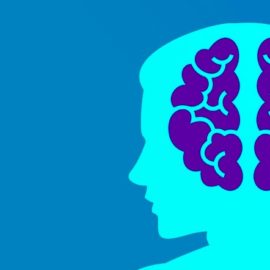

This article is an excerpt from the Shortform book guide to "This Naked Mind" by Annie Grace. Shortform has the world's best summaries and analyses of books you should be reading.
Like this article? Sign up for a free trial here.
Did you have to acquire a taste for beer or wine? Does social drinking help you fit in? Is drinking in moderation beneficial?
Most alcohol addiction programs are designed to get you to resist the temptation to drink; you’re left with the impression that you’re missing out by abstaining. This Naked Mind, a book by Annie Grace, offers a different approach: See alcohol for the nasty poison it truly is, and you won’t even want to drink.
Continue reading for an overview of Grace’s practical book This Naked Mind.
Overview of This Naked Mind
This Naked Mind, a book by Annie Grace, reveals the real reason it’s so hard to quit drinking: We often see alcohol as a drink that enhances life experiences and makes us happy, relaxed, and confident. Although in reality alcohol does none of these things, Grace explains that our unconscious minds still cling to these false beliefs that alcohol is good. To break free from alcohol dependence, you must change your unconscious beliefs and see alcohol as it truly is: an addictive drug that poisons your mind and body. When you change your beliefs, you’ll overcome addiction by no longer wanting to drink, and you’ll enjoy a fulfilling life free of alcohol.
Grace is a speaker, coach, and founder of This Naked Mind, which offers resources and programs for quitting or cutting back on alcohol. After becoming the youngest vice president in the history of a multinational company, Grace developed a dependence on alcohol. By changing her subconscious beliefs about alcohol, she went from drinking two bottles of wine at night to being happily sober.
We’ll first explore why people struggle with alcohol addiction by explaining what alcohol does to the body and how addiction works. Then, we’ll discuss ways to change the false unconscious beliefs we have about alcohol and recover from addiction without needing formal treatment or rehabilitation.
Part 1: Understand the Truths About Alcohol and Addiction
Before we look into ways to deconstruct society’s misleading messages about alcohol, it’s important to understand how alcohol and addiction work. We’ll discuss common misconceptions about alcohol, why everyone’s at risk for addiction, and how a denial of that fact leads to alcohol abuse.
Society Misrepresents Alcohol and Addiction
Grace writes that society misrepresents alcohol addiction in two ways: First, it conditions us to believe that alcohol is less dangerous or addictive than it really is. Second, it makes us believe that addiction happens only to people who can’t control their drinking and that we who do have control are safe from it. Because of this, many people are unaware of the dangers of drinking and the risk of addiction. Let’s look at these two misconceptions in more detail.
The Dangerous Truth About Alcohol
First, Grace points out that society often differentiates alcohol from other drugs, leading us to believe that it’s less harmful than substances like heroin or cocaine. However, Grace argues that this is dangerously misleading: Contrary to what society would have us believe, alcohol is a highly addictive drug, and it affects everyone’s mind in the same way.
Grace defines addiction as a habit you can’t break, even when you know it’s bad and want to stop. Alcohol causes addiction by affecting your brain in several ways:
1. Alcohol activates the pleasure center in your brain and causes it to release dopamine. Dopamine is a brain chemical that motivates you to seek rewards—in other words, it makes you crave more alcohol. However, contrary to popular belief, dopamine doesn’t bring you any enjoyment itself.
2. Your tolerance increases the more you drink. Over time, you become less sensitive to the effects of alcohol and need to drink more to feel relief or enjoyment. This is because your body is always trying to stay in a stable and balanced state (a process called homeostasis). When you drink alcohol, you artificially stimulate the brain’s pleasure center. In reaction to this, your brain releases chemicals that dull this stimulation in its efforts to maintain homeostasis, reducing the pleasure you get from the alcohol.
3. You feel worse when alcohol leaves your system. Grace adds that, each time you take a drink and it leaves your body, you’re left with an empty and unpleasant sensation that drives you to remedy it by drinking more.
4. It damages your decision-making skills. Grace writes that alcohol impairs your prefrontal cortex—the part of your brain that helps you make good decisions and control your impulses. The more you drink, the harder it is to resist another drink.
Alcohol Addiction Can Happen to Anyone
We often think alcohol addiction only happens to people with certain weaknesses or defects and that most people can control their drinking. But, Grace writes that anyone who drinks alcohol can and will become addicted if they drink enough of it. Grace explains that there aren’t specific genes or personality traits that cause some people to become addicted while others don’t. The only difference in how alcohol affects drinkers is how fast or how slow addiction sets in.
Believing that addiction is abnormal, and self-control is all that’s needed to drink responsibly is harmful, Grace argues. It causes people to deny or hide their drinking problems for fear of being judged. This belief also makes it harder for people to see that alcohol is the real problem, not them, and recognize their addiction before it gets out of control.
Part 2: Change Your Subconscious Beliefs About Alcohol
You might know consciously that alcohol is a dangerous drug that can hook anyone who drinks it. But, Grace argues that this knowledge is often not enough to stay sober after you quit alcohol. You also need to change your subconscious mind, which still thinks that alcohol is good and that abstaining from it means losing something valuable.
But, what unconscious beliefs might you have? Grace writes that alcohol is a big part of Western society and culture. Drinking is common in many cultural traditions—from weddings to football games. On top of that, advertisements, friends and family, movies, and social gatherings all lead you to the false conclusion that alcohol is good.
Grace argues that, as long as you subconsciously think alcohol is good for you, quitting will be hard. To live a life free of alcohol, you must challenge your beliefs that alcohol has any value or benefit, understand where those beliefs come from, and question the reasons you drink. Once you see alcohol as a poison, not an antidote, you won’t want to drink anymore.
Let’s explore some beliefs that lead people to drink and discuss why alcohol doesn’t provide the benefits that people believe it provides.
False Belief #1: Alcohol Tastes Good
Some people claim to enjoy alcohol because of its taste. But Grace writes that it’s not the alcohol that they like but the flavor of other ingredients in their drink—such as the juice or the sugar. In fact, many people dislike their first sip of alcohol, which should be a sign that it’s bad for us. Our taste and smell are two senses that warn us about things that are bad for us or could make us sick, such as rotten foods and, in this case, alcohol.
However, we ignore our senses and continue consuming alcohol because of the societal conditioning we’ve received throughout our lives. We reason that, despite its taste, alcohol must improve our lives in some way because so many people drink it. We’re even told that we must acquire a taste for it. However, the unpleasant taste, in fact, makes us feel safer from addiction because we assume we can’t become addicted to something that we don’t enjoy the taste of.
For other people, it’s less about the taste of alcohol itself, but how alcohol makes other foods taste. However, Grace argues that alcohol doesn’t improve the flavor of food, but actually makes it worse. She explains that alcohol numbs your taste buds, making them less sensitive to the flavors of food.
False Belief #2: Alcohol Is Healthy in Moderation
Another belief people hold is that drinking in moderation is actually good for health. However, Grace writes that this isn’t true: Drinking any amount of alcohol is bad for your health. She explains that alcohol affects your body in many negative ways: It slows your brain functioning, hinders your ability to regulate emotions, weakens your heart, increases the risk of blood clots, damages your liver, weakens your immune system, and can even cause cancer and early death.
If alcohol has such harmful effects, why do some studies show that drinking is good for your health? Grace explains that alcohol does have some medicinal properties, but they aren’t great enough to outweigh the harms of drinking. She elaborates that there are much better alternatives that can provide the same benefits without the risks. For example, drinking juice that’s rich in antioxidants will likely give you the same benefits as drinking wine.
False Belief #3: Alcohol Relaxes You and Improves Your Mood
Grace claims that many people also drink because they believe alcohol helps them relax and feel happier. They think alcohol can make their problems go away or make them forget about them. However, Grace challenges this belief and says that alcohol isn’t a real solution: Drinking only dulls your feelings and thoughts for a short time—it doesn’t change anything about your situation or emotions. When the alcohol wears off, you’re left with the same issues that made you unhappy or stressed in the first place, prompting you to drink even more to find relief.
Not only does alcohol fail to provide any real solutions to your problems, but it tends to worsen your mood. The more you rely on alcohol to bring you happiness and relief, the harder it becomes for you to naturally feel good. To truly relax and improve your mood, Grace writes that you must tackle the source of your stress or unhappiness. Using alcohol to handle your problems only leads to more problems and more drinking.
False Belief #4: Alcohol Helps You Function Better
Another reason people drink is because they think it makes them the best versions of themselves, helping them be more interesting, confident, or better at sex. They think alcohol helps them overcome fears or shyness, allowing them to make new friends at a party or talk to a crush. However, Grace writes that alcohol actually causes you to function worse. It may help you care less, but it ultimately numbs your senses, lowers your inhibitions, and prevents you from thinking clearly.
Grace writes that shyness and fear are natural and even helpful emotions. They help us decide what’s appropriate to say and do. They also motivate us to prepare well for challenging tasks. By numbing these emotions with alcohol, we not only miss out on their benefits and perform our tasks poorly, but we also risk our safety and well-being as well as those of others. Grace writes that alcohol not only reduces sexual desire and performance, but it also increases the likelihood of dangerous behavior such as sexual assault.
False Belief #5: Alcohol Enhances Social Experiences
Another reason people drink is that they believe it makes social experiences better and more enjoyable. Grace points out that alcohol is so strongly associated with celebration in society that we assume the joy we feel is due to the alcohol. What many of us don’t realize is that the joy comes from spending time with others and doing activities that you enjoy, not from drinking.
Grace challenges you to think back to the happy memories you had before you started drinking. Doing this will help you realize that you don’t need alcohol to enjoy yourself. You can also try not drinking during one social gathering. You’ll likely find that social experiences are even more fun and rewarding when you’re sober, Grace writes.
Part 3: Become Sober Without Formal Treatment
Now that you’ve learned the truth about alcohol, addiction and the misguided reasons why people drink, let’s discuss Grace’s method for recovering from alcohol dependence. According to Grace, quitting alcohol by yourself, without any formal treatment, is much more effective than traditional recovery programs.
Popular programs like Alcoholics Anonymous (AA) make you feel as though you have to accept sobriety, which makes you feel powerless and creates a sense that you’re losing something valuable by not drinking. However, when you choose to quit of your own volition and by changing your unconscious beliefs, you feel more at peace with your decision and are less likely to want to drink again. You choose rather than accept living without alcohol because you know that alcohol has nothing good to offer and that life is better without it.
Commit to Quitting Alcohol
You might wonder whether you can have the occasional drink instead of quitting alcohol completely. However, Grace argues that it’s better to commit to quitting alcohol completely than to drink moderately. She provides several reasons:
First, alcohol is an addictive drug that gradually changes your brain. You can’t tell when you’ll become physically dependent on alcohol. Because you can’t control how your brain reacts to alcohol, moderation is hard to achieve.
Second, Grace argues that decision-making is a draining and stressful mental activity. When you drink moderately, you must constantly decide when and how much to drink. Moreover, alcohol impairs your judgment and makes it easier to lose control of your drinking. By making a firm commitment to stop drinking, you free yourself from the ongoing dilemma of whether to drink or not.
Find Pleasure in Abstinence
Once you’ve challenged your unconscious beliefs, you should no longer have a desire to drink. All that’s left to do is to make the commitment and quit drinking. Once you decide to quit alcohol, you might wonder how you can stay sober when other people are drinking around you. According to Grace, you don’t need to avoid settings where alcohol is present. All you must do is remember the harmful truths of alcohol and addiction. When you remember the true nature of alcohol, you’ll realize that giving it up isn’t a sacrifice but a pleasure, and you won’t even feel tempted to drink.
To quit drinking without formal treatment and remind yourself that life is better without alcohol, consider some of Grace’s suggestions.
1. Accept that you have an emotional or physical dependence on alcohol. Alcohol is a drug that affects your mind and body. Depending on your level of dependence, you may experience withdrawal symptoms that can be difficult to deal with. If you’re struggling with withdrawal, Grace recommends you seek medical help or go to a rehabilitation center.
2. Accept that alcohol does nothing good for you. Grace urges you to regularly challenge your unconscious beliefs about alcohol. When you recognize that alcohol has only caused pain and that being sober enhances your life, you’ll eliminate your desire to drink altogether. When you view alcohol as the dangerous and harmful substance it is, you’ll find it much easier to live without it.
3. Start living life without alcohol. You may feel uncertain about quitting alcohol, but Grace writes that that’s normal. You just have to commit to not drinking, even if only for a period of time. When you do, you’ll discover the benefits of living alcohol-free and recognize that life is better without alcohol.

———End of Preview———
Like what you just read? Read the rest of the world's best book summary and analysis of Annie Grace's "This Naked Mind" at Shortform.
Here's what you'll find in our full This Naked Mind summary:
- The real reason why it's so hard to quit drinking
- How alcohol affects your brain and body and leads to addiction
- How to break free from alcohol dependence by changing your mindset







Anne Grace’s book is dangerous. I stopped drinking 36 years ago, on my own. After 15 years My life got bad and I started drinking again. Hard. I tried AA for a few months and stopped going. My friend was in bad shape so I took him to a meeting. He left AA after 30 days. I stayed. It’s been 15 years. My friend died at the age of 44 of alcohol poisoning. He always thought that after 6 to 12 months of being sober, he was safe to drink.
His sister is following the same pattern. She wants to read this book in rehab.
I have seen thousands of people totally change their lives in AA. I have never seen anyone make it with the Grace method.
In AA, we meet to discuss our lives as it relates to alcohol. Some go every day, others on a regular basis. You won’t believe the success stories. Seriously, you will not. It needs to be experienced.
I took my wife to a friend’s funeral. The large catholic church, run by a sober alcoholic priest, was packed. It was a spine-tingling experience.
I strongly advise that nobody take the advice offered in this book.